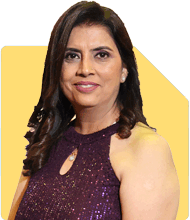Dear Naveen sir, I am 48 year having privet Job. I have started investment from 2017, current value of investment is 82L and having monthly 50K SIP as below. My goal to have 2.5Cr corpus at the age of 58. Please advice...
1. Nippon India small cap -Growth Rs 5,000
2. Sundaram Mid Cap fund Regular plan-Growth Rs 5,000
3. ICICI Prudential Small Cap- Growth Rs 10,000
4. ICICI Prudential Large Cap fund-Growth Rs 5,000
5. ICICI Prudential Balanced Adv. fund-Growth Rs 5,000
6. DSP Small Cap fund Regular Growth Rs 5,000
7. Nippn India Pharma Fund- Growth Rs 5,000
8. SBI focused Fund Regular plan- Growth Rs 5,000
9. SBI Dynamic Asset Allocation Active FoF-Regular-Growth Rs 5,000
Ans: Thank you for sharing the details clearly. Let me break this down calmly and practically.
Where you stand today
Age: 48
Investment start: 2017
Current portfolio value: approx ?82 lakh
Monthly SIP: ?50,000
Time to goal: 10 years
Target corpus: ?2.5 crore at age 58
First, the good news. With an ?82 lakh base already built, you are not starting late. You are already past the hardest part, which is accumulation.
Is the goal achievable?
Yes, it is achievable with discipline and some fine tuning.
If your existing ?82 lakh grows at a modest 11 percent for 10 years, it alone can become roughly ?2.3 crore.
Your ongoing SIP of ?50,000 per month, even at 10 to 11 percent, can add another ?1 crore plus over 10 years.
So mathematically, you are on track. The key question is risk balance and fund structure, not return chasing.
Review of your current SIP portfolio
Right now, your SIPs have:
• Heavy exposure to small cap funds
• Multiple funds from the same AMC
• One sector fund
• Very little clarity on core stability
Small caps give good returns, but at your age and goal timeline, too much concentration can increase volatility when you least want it.
What needs correction
Reduce small cap overload
You have three small cap funds plus one focused fund. That is aggressive. Keep one strong small cap fund, not three.
Avoid duplication
Multiple funds from the same AMC don’t add diversification. They increase overlap.
Sector fund allocation
Pharma fund is fine, but limit it to a smaller portion. Sector funds should never drive the portfolio.
Add a clear core
Large cap or flexi cap should be the backbone now. Stability matters more than excitement.
Suggested SIP structure (illustrative)
Out of ?50,000 monthly SIP:
• Large cap or Flexi cap: ?15,000
• Hybrid or Dynamic asset allocation: ?10,000
• Mid cap: ?10,000
• Small cap: ?10,000
• Sector or thematic (optional): ?5,000
This gives growth without sleepless nights.
Important next steps
• Gradually rebalance existing investments, do not exit everything at once
• Shift from Regular plans to Direct plans if possible (this alone improves returns)
• Review asset allocation every year, not returns
• From age 55 onward, slowly start moving part of equity gains to safer instruments
Final thought
Your goal of ?2.5 crore is realistic. You don’t need aggressive bets anymore. You need consistency, structure, and risk control.
If you want, I can:
• Rebuild this exact portfolio fund by fund
• Estimate year wise corpus growth
• Suggest a pre retirement safety strategy from age 55
Just tell me how deep you want to go.
Thank you for sharing your details so openly. Let me talk to you like I would to a friend, not in numbers first, but in reality.
You are 48, you started investing back in 2017, and today you’ve already built around ?82 lakh. That itself tells me one thing. You are disciplined and you stayed invested. That matters more than anything else.
Now about your goal of ?2.5 crore by 58. Honestly, this is not an unrealistic dream. In fact, you are closer than you think. With ten years still in hand and a steady ?50,000 SIP running, the foundation is already strong.
Looking at your SIP list, you’ve clearly leaned towards growth funds, especially small caps. That’s fine, and it probably helped you build this corpus so far. But as you move closer to your goal, the game slowly changes. It’s less about chasing the highest return and more about protecting what you’ve already built.
Right now, there’s a bit too much exposure to small caps and some overlap between funds. When markets do well, this feels great. But when they correct, the same portfolio can test your patience and peace of mind.
You don’t need to overhaul everything. Small adjustments are enough. Think of large cap or flexi cap funds as the steady engine of your portfolio. Mid caps and small caps should add growth, not dominate it. Sector funds like pharma are okay in small doses, but they shouldn’t drive your future.
If you balance things a little better, your existing ?82 lakh has a very good chance of compounding close to your target on its own. Your SIPs then become the safety margin, not the lifeline.
The most important part comes after 55. That’s when you slowly start moving some money to safer avenues so that a market fall doesn’t hit you right before retirement.

























